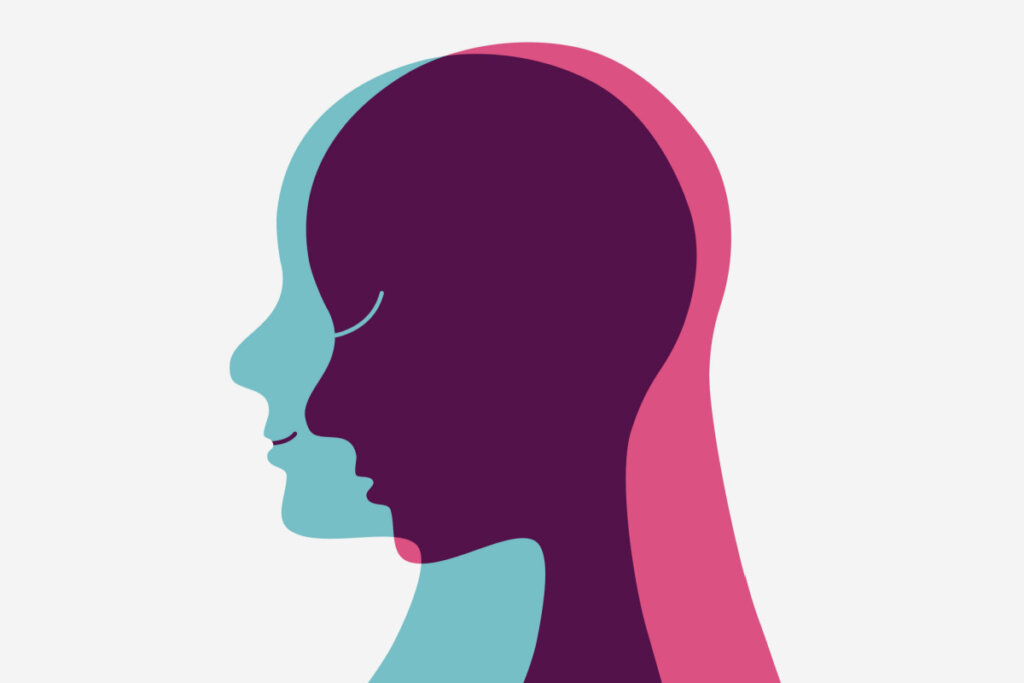Comparative Suffering: Comparing Your Pain to That of Others


Written and verified by the psychologist Valeria Sabater
When you’re reviewing and scrolling through your social media, you come across many personal stories. Often, they’re testimonies from people about their personal problems, tragedies, or battles with mental health. However, when you’re reading these stories, you might think “I’ve suffered far more than you but I’m not publishing the fact.”
As a human being, you have a curious habit. You tend to measure others’ suffering against your own. Moreover, you tend to assume that someone who hasn’t ever encountered any adversity knows nothing about human existence. On the other hand, you believe that those who’ve had the misfortune to go through seemingly neverending problems possess immeasurable experience and wisdom.
From the moment you start to classify pain, you deny others the opportunity of feeling it. It’s something that, as humans, we’ve always done. Moreover, with the advent of social media a few decades ago, this trend has become far more visible.
Human beings have the full right to process and express their suffering regardless of what led them to the situation. Everyone’s experience is unique. Therefore, comparing misfortunes and sadness is meaningless.

Comparative suffering
In your childhood and adolescence, you may have often found yourself in these kinds of situations. Moreover, adults frequently underestimate the disappointments experienced by the very young. For example, when a child argues with their best friend, their father or mother might tell them that it’s nothing and that they’ll soon make new friends.
Along the same lines, when a teen breaks up with their first love, their elders might insist that they still have a great deal to live for. “There’s plenty more fish in the sea!” they tell them. However, to these young people, their misfortunes feel like the end of the world. Surely you can remember some of your own past experiences?
Comparative suffering defines the tendency to judge the misfortunes of others through the prism of our own experiences. This practice of classifying discomforts and giving them a scale is both negative and harmful.
You don’t only invalidate other people’s realities, thus denying them the opportunity to express themselves. You might also act as a judge and dictate who has the right to complain and who doesn’t. But, in reality, suffering, in any of its forms, requires empathy, not judgment.
Every human being deserves to experience their emotions of sadness and anguish. Others should never veto them.
The consequences of nullifying another’s discomfort
When you apply comparative suffering to another person, you’re delegitimizing them. You make them believe that their shame, fears, and anxieties aren’t valid because (apparently) you’ve gone through far worse circumstances.
To invalidate someone’s emotional experience is to make their own history, needs, and opportunities for growth invisible. It’s an obvious form of abuse that should be reviewed by society.
A study conducted by Wesleyan University (USA) claims that people’s emotions can’t only be understood from a psychobiological or neurological point of view. It’s also a cultural phenomenon. Moreover, sometimes, the surrounding context (family, school, friends, etc) can act as an inhibitor of certain emotions and feelings. This is a counterproductive practice deeply rooted in everyday life.
Suffering isn’t a competition
Suffering isn’t a competition in which someone must always win first prize. Nor is there any classification of suffering according to certain degrees and levels. That said, society has an almost irrational obsession with labeling everything. This explains comparative suffering.
In addition, the factor of narcissism or intrinsic egoism shouldn’t be ignored. In fact, some people like to emphasize how much they’ve suffered in life. Although this may be the case, it doesn’t give them the right to underestimate the misfortune of others. Comparing misfortune and pain is a trap, a de facto error that can only be resolved with empathy.
Many of us were brought up with the idea that our emotions weren’t important. This can mean that, in adulthood, we end up underestimating our sorrows and misfortunes, assuming that “others have had a far worse time”.

When you underestimate your own suffering
You might wonder how you possibly have the right to complain when there are people who are having a far worse time than you. But, comparative suffering also manifests itself when you’re the one detracting from your own experiences by comparing them to others. This can make you say harmful things like:
“I’m bad at my job, but I have to put up with it because some people don’t even have a job” or “I’m unhappy and I hate myself, but I have no right to complain because my best friend just lost her father and it’s far worse for her”.
Comparing your experiences with the lives of others can also be a really dangerous form of invalidation. As the writer, Brené Brown states, it’s a way of vetoing your vulnerability and not facing whatever it is that’s detracting from your own existence. What you don’t shine a light on remains dormant, intensifying your feelings of discomfort.
Finally, always remember, suffering is suffering. It doesn’t disappear just because there are people who, apparently, are having a worse time than you. Comparative suffering makes you sick and bitter. You must have compassion for yourself and empathy with others. Discomfort and sadness aren’t a competition, nor dimensions that require judgments. They’re wounds that require your attention and respect.
All cited sources were thoroughly reviewed by our team to ensure their quality, reliability, currency, and validity. The bibliography of this article was considered reliable and of academic or scientific accuracy.
- BAILEY, C. (2016). The History of Emotions. M. Weiss, L. Passerini, A. Geppert, L. Ellena, J. Plamper, W. M. Reddy, M. William, S. Szreter, K. Fisher, M. D. Steinberg, & V. Sobol]. Contemporary European History, 25(1), 163–175. http://www.jstor.org/stable/26294044
- McKinzie AE. In their own words: disaster and emotion, suffering, and mental health. Int J Qual Stud Health Well-being. 2018 Dec;13(1):1440108. doi: 10.1080/17482631.2018.1440108. PMID: 29493424; PMCID: PMC5844051.
This text is provided for informational purposes only and does not replace consultation with a professional. If in doubt, consult your specialist.








